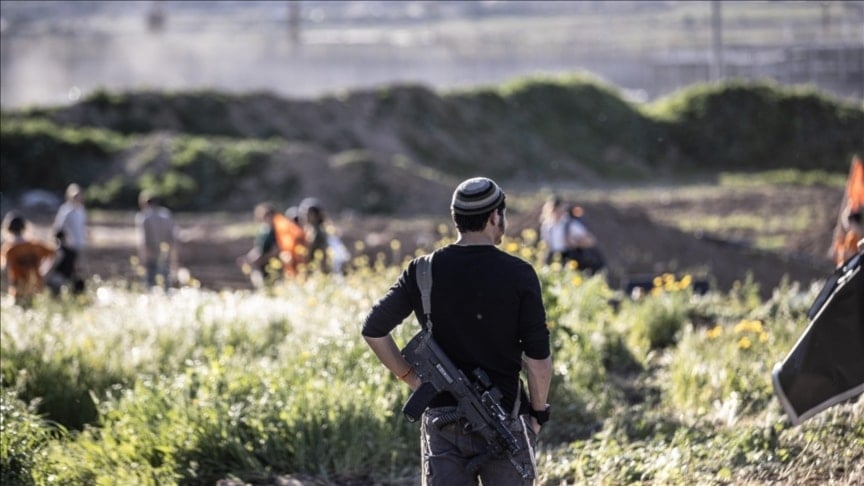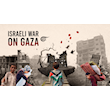'Israel' ends housing aid for Gaza border evacuees
The Israeli occupation is pausing funds for housing Gaza border evacuees, prompting criticism from the families of captives, as Tel Aviv claims diminished threat while continuing its deadly war on Gaza.
-

An Israeli settler crosses an illegal IOF checkpoint between northern Gaza and occupied Palestine to demand the establishment of new settlements, on February 29. (Getty Images)
The Israeli government has approved a plan to stop funding housing for settlers evacuated from Gaza border settlements following Operation Al-Aqsa Flood. According to Yedioth Ahronoth, residents have until the end of July to return to their settlements.
The decision, passed through a phone poll vote, terminates temporary housing support for evacuees from 12 settlements heavily affected by the operation. That said, Israeli military officials claim that as of July 1, there are no longer security restrictions preventing residents from returning.
The Tekuma Authority, responsible for rehabilitating border communities, confirmed that the settlements affected include Be'eri, Holit, Kissufim, Kfar Aza, Karem Abu Salem, Nahal Oz, Nirim, Nir Yitzhak, Nir Oz, Netiv HaAsara, Sufa, and Ein HaShlosha.
Since the onset of the war, tens of thousands of settlers were relocated to hotels and temporary accommodations in central parts of occupied Palestine.
On that note, the Hostages and Missing Families Forum criticized the decision, arguing it contradicts the occupation government’s rationale for ongoing attacks in Gaza, stating that, "If there’s no security restriction to returning to the border area, then there’s no justification to prolong the war."
"The government has once again proven what much of the public already knows" the threat from Gaza has diminished. It's time to reach a comprehensive deal to return all 50 hostages and bring the mission to a close," the Forum said.
Ongoing Gaza draws global legal scrutiny
While Tel Aviv estimates that 50 captives are held in Gaza, including 20 alive, over 10,400 Palestinians remain imprisoned under Israeli detention, enduring torture, starvation, and medical neglect. These conditions have led to numerous deaths, according to human rights organizations.
Since October 2023, the Israeli army has pursued a relentless military campaign against Gaza, killing over 56,500 Palestinians, mostly women and children, drawing widespread condemnation and legal action.
In November, the International Criminal Court issued arrest warrants for Prime Minister Benjamin Netanyahu and former Security Minister Yoav Gallant on charges of war crimes and crimes against humanity in Gaza, while “Israel” also faces a genocide case at the International Court of Justice for its actions against civilians in the besieged enclave.
On that note, the Israeli occupation forces launched a brutal overnight assault on the Gaza Strip overnight Sunday, killing a family of 18 Palestinians in a strike, according to Al Mayadeen’s correspondent.
One of the deadliest strikes targeted a residential home in Jabalia al-Balad, in northern Gaza, where an entire family of 18 people was wiped out in a single Israeli air raid. Elsewhere in North Gaza, Israeli warplanes carried out a wide-scale bombing campaign across multiple areas, including eastern Gaza City, Jabalia, and the al-Zaytoun neighborhood, south of the city.
In al-Shati refugee camp, located west of Gaza City, four Palestinians were martyred and others wounded after the occupation bombed an area near Martyrs' Square, where residents had gathered to receive aid and shelter.
Meanwhile, in the southern Gaza Strip, Israeli aircraft bombed a displacement tent in the al-Mawasi area west of Khan Younis, resulting in several casualties. The attack targeted an area previously designated as a “safe zone,” further deepening the humanitarian crisis gripping the territory.

 3 Min Read
3 Min Read











